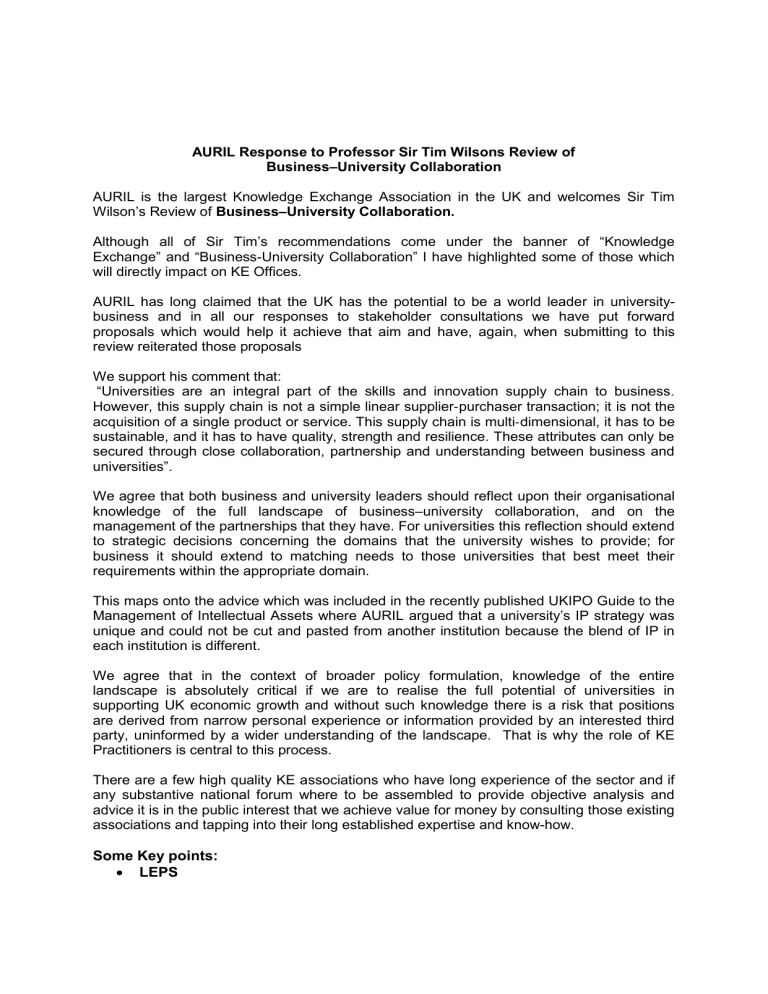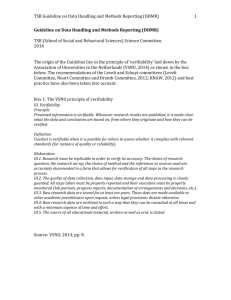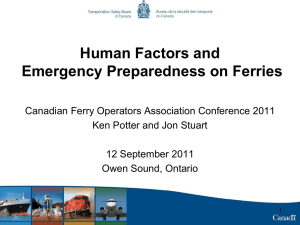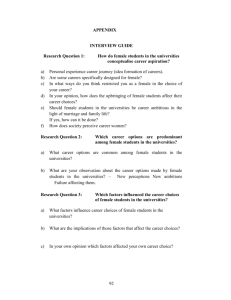here

AURIL Response to Professor Sir Tim Wilsons Review of
Business –University Collaboration
AURIL is the largest Knowledge Exchange Association in the UK and welcomes Sir Tim
Wilson’s Review of Business –University Collaboration.
Although all of Sir Tim’s recommendations come under the banner of “Knowledge
Exchange” and “Business-University Collaboration” I have highlighted some of those which will directly impact on KE Offices.
AURIL has long claimed that the UK has the potential to be a world leader in universitybusiness and in all our responses to stakeholder consultations we have put forward proposals which would help it achieve that aim and have, again, when submitting to this review reiterated those proposals
We support his comment that:
“Universities are an integral part of the skills and innovation supply chain to business.
However, this supply chain is not a simple linear supplier ‐ purchaser transaction; it is not the acquisition of a single product or service. This supply chain is multi ‐ dimensional, it has to be sustainable, and it has to have quality, strength and resilience. These attributes can only be secured through close collaboration, partnership and understanding between business and universities”.
We agree that both business and university leaders should reflect upon their organisational knowledge of the full landscape of business
–university collaboration, and on the management of the partnerships that they have. For universities this reflection should extend to strategic decisions concerning the domains that the university wishes to provide; for business it should extend to matching needs to those universities that best meet their requirements within the appropriate domain.
This maps onto the advice which was included in the recently published UKIPO Guide to the
Management of Intellectual Assets where AURIL argued that a university’s IP strategy was unique and could not be cut and pasted from another institution because the blend of IP in each institution is different.
We agree that in the context of broader policy formulation, knowledge of the entire landscape is absolutely critical if we are to realise the full potential of universities in supporting UK economic growth and without such knowledge there is a risk that positions are derived from narrow personal experience or information provided by an interested third party, uninformed by a wider understanding of the landscape. That is why the role of KE
Practitioners is central to this process.
There are a few high quality KE associations who have long experience of the sector and if any substantive national forum where to be assembled to provide objective analysis and advice it is in the public interest that we achieve value for money by consulting those existing associations and tapping into their long established expertise and know-how.
Some Key points:
LEPS
“LEPs have the potential to have a significant influence upon economic growth in their localities. Universities are key players in the supply chain for research, innovation and skills; they should be at the heart of an LEP. Government should work with the LEP network to understand local priorities and needs for government funding, including activities supporting generic business –university engagement”
AURIL agrees and because of their experience would recommend that KE
Practitioners should be central to this discussion
UK Trade & Investment (UKTI)
“UK Trade & Investment (UKTI) should reconsider the role of universities in providing critical intelligence, support a nd ambassadorial engagement with potential investors”.
AURIL agrees and we have already begun working with UKTI offices in the USA to start building that relationship.
Impact
“The strategies that universities will use to optimise the impact of their research in future REF exercises are yet to emerge into the public domain, but may lead some to move further along the value chain of exploitation activity with business, with a view to optimising the consequences of their research. Such strategies would also be welcomed as they would strengthen business –university collaboration”.
AURIL agrees and lobbied successfully to have KE Practitioners included on the REF panels for the first time as we believe they are best placed to assess “Impact”
The role of intermediaries/KTOs
“It is important to recognise that there is no one intermediary model that suits all situations ”.
We agree – just as there is no one IP Model!
People and knowledge exchange
AURIL has long supported and encouraged placements and secondments as we view it as the best route to real engagement between the supply and demand sectors. However we believe that this should not stop at academic-industry exchange and those opportunities should be encouraged where stakeholder employees and KE
Practi tioners can spend time in each other’s environment.
Knowledge transfer partnerships
The Recommendation is that:
“The TSB is encouraged to build on proven success and expand both the KTP and the mini ‐ KTP programmes to meet the needs of business. The TSB should also be encouraged to find mechanisms to facilitate networking between KTP associates as part of a broader agenda to unify the people exchange programme. For a limited number of appropriate cases, the TSB should consider raising their current financial contribution for salaries where it is necessary for postdoctoral staff to be employed on a KTP programme.”
AURIL has fought hard not to restrict the sectors where KTPs can be awarded and to expand the total number. This is a tried and trusted route to business engagement and there is no reason why expansion of KTPs should not be increased.
The problems created by the reduction in KTPs last year was underestimated by stakeholders. Considerable time and effort goes into building business relationships
and getting commitment from all parties. When a good project is not funded that can create real damage to that relationship.
Innovation vouchers
The Recommendation is that:
“The innovation voucher scheme should be reintroduced under the governance structure of the TSB, working through the LEP network, which will determine local eligibility criteria. The government may wish to advise the TSB on the broad parameters of fund distribution in the light of its priorities for economic regeneration.
The value of the voucher should be set by the TSB after consultation with the LEP network and e xperienced university providers.”
When surveyed AURIL members totally supported the Innovation voucher scheme and believed it was an excellent route for SMEs or those companies who had not previously worked with universities to engage with academics. Practitioners made several recommendations which the TSB may wish to consider:
1. KTPs operate well as a nationally managed scheme so there is no reason why Innovation Vouchers cannot be managed in the same way
2. What the scheme does not need is an increase in the administrative burden either for the institution or the business
3. Vouchers should be issued on a quality base not a geographical one, i.e. a company should be able to be use the voucher where it can get the BEST solution not the NEAREST one.
4. A closer look at the value of the vouchers. Depending on the nature of the tas k companies should be able to go back for a small “top-up” voucher instead of only for a separate project as at present. This is not getting research on the cheap but sometimes the original voucher frustratingly only gets the company within touching distance of a solution
Business –university collaboration in Research Councils and the Technology
Strategy Board .
“There appears to be a looser relationship between the RCs and TSB than Sainsbury envisaged and there is a risk that the market may be confused if an RC and the TSB offer similar services on an open basis. In practice the relationship works through formal and informal arrangements”
The Recommendation is that:
“In the rapidly changing environment of research translation it is essential that there is a systematic interaction between RC and TSB governing bodies and staff in order to ensure there are on-going agreements about which services are offered on an open basis to which markets. The strategic partnership group should propose measures to ensure that such interaction is established.
”
Members have reported that there is some confusion in the offering between the two bodies and perhaps there needs to be clearer definition and marketing of their respective offerings
Philip Graham
Executive Director
AURIL
28 Feb. 12
Professor Sir Tim Wilson’s review can be found on the BIS website here http://www.bis.gov.uk/assets/biscore/further-education-skills/docs/w/12-610-wilsonreview-business-university-collaboration and the review website here www.wilsonreview.co.uk
.








